Just like grown-ups and adults, children can sometimes struggle with their mental health too. It’s often hard for parents to understand this, but recognizing the warning signs is crucial. Children cannot always explain properly what they feel and how they feel, because they might feel confused about it all, but as parents, it’s your responsibility to try and understand what they are going through.
Mental Health vs Mental Health Disorder
Mental health is the overall wellness of a person’s mind. It involves how a person thinks, regulates their feelings, and how they behave as a result of those thoughts and feelings.
Mental health disorders can be defined as the changes in the patterns and thoughts that affect the behavior of an individual. These thoughts and feelings cause disruption in a person’s ability to behave in a normal way.
When it comes to children, some of the common mental health disorders they go through or can go through are anxiety disorders, ADHD, autism spectrum disorder, eating disorders, and others.
In order to ascertain whether your child is suffering from any mental health disorder or not, you should try and look for some signs that might suggest that they are not in a good place, mentally and emotionally.
Read 4 Signs of Mental Health Problems in Children
Warning signs that your child is struggling with their mental health
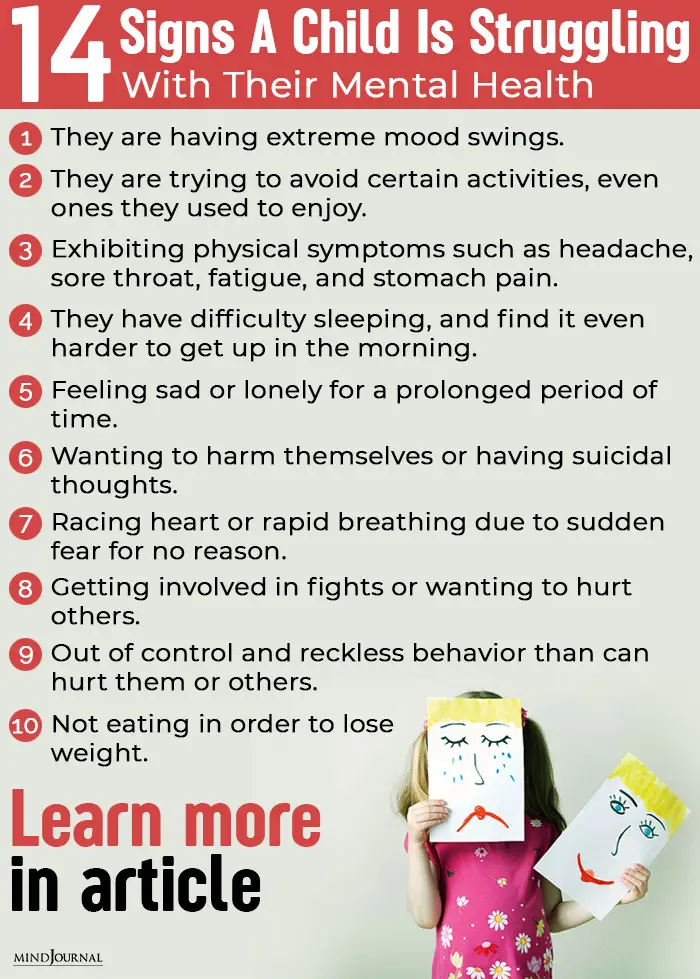
1. Mood swings
Have you noticed that your child is sometimes extremely happy and sometimes extremely sad? Like grown-ups, children can also have bad days, when they feel not so good about the things happening in their lives. Maybe they got a bad score on a test, or maybe they had a fight with their best friend. But extreme mood swings in children are not a very normal thing; having frequent mood swings can be a sign that your child is feeling anxious or depressed.
Some children might find it difficult to concentrate on one thing, and their minds will always be racing from one thought to another. They might also get obsessive about multitasking, which can potentially be a sign of ADHD, or Asperger’s.
2. Avoiding certain situations
Avoiding certain situations due to some reasons is a common behavior among adults. However, if you see that your child is getting angry or panicking at the thought of doing something they used to love doing, then it may be a sign that they have some underlying mental health condition that is making them suffer, emotionally and mentally. Moreover, it can also be a sign of anxiety or obsessive-compulsive disorder (OCD).
If your child is avoiding an activity they used to enjoy, then the best thing you can do is approach them gently, and try to talk to them about what is bothering them Make sure that you don’t come across as too overbearing, and handle the whole situation with a lot of patience and kindness because children sometimes have a hard time putting their feelings into words.
3. Physical symptoms
For children, trying to express their feelings can sometimes prove to be a challenge. But there can be physical symptoms that may help you in understanding whether they are going through something bad or not. Sometimes when a child is feeling anxious they may display symptoms like headache, stomach pain, fatigue, or having a sore throat with no apparent cause. All these might be signs of distress and poor mental health.
It can be difficult to work out what the real issue is as children, most of the time, lack the ability to express their feelings properly or specifically describing the symptoms. Keeping an open mind is always wise in such circumstances if you want to genuinely help them deal with this and in order to get to the root of the issue.
Read 6 Tips To Reduce Self-Harm In Children
4. Fluctuations in sleep
When children are anxious or nervous about certain things they may have difficulty sleeping properly, or in other words, be insomniac, and then have trouble getting up in the morning. It is important to look into your child’s mental health, as this is a major sign of poor or failing mental health.
If your child is finding it hard to sleep, also look for the feelings combined with it. Are they getting angry, tearful, or unable to concentrate? These might point towards depression or anxiety.
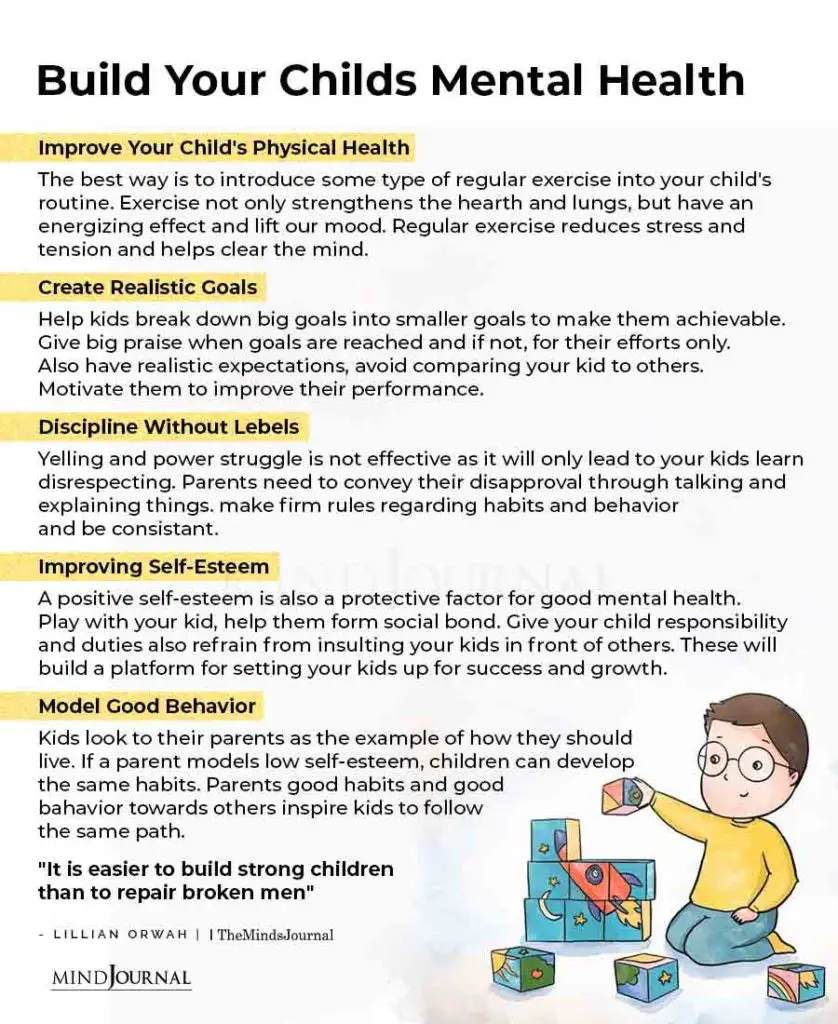
Other signs
Here are some of the other signs that indicate your child may be struggling with their mental health:
5. Feeling sad or lonely for a prolonged period of time.
6. Wanting to harm themselves or having suicidal thoughts.
7. Racing heart or rapid breathing due to sudden fear for no reason.
8. Getting involved in fights or wanting to hurt others.
9. Out of control and reckless behavior than can hurt them or others.
10. Not eating in order to lose weight.
11. Always feeling worried or fearful about something or the other, so much so that it interferes with daily life.
12. Having difficulty concentrating, which consistently ends up affecting their academic performance.
13. Over-dependence on alcohol, and drugs.
14. Drastic changes in behavior or personality.
As a parent, what can you do to help your child?
If you see any signs or symptoms that your child may be struggling with their mental health, then you can opt for the following measures:
1. Talk
You can talk to your kid about what’s bothering them and comfort them by saying that you are always there to help them. It is important to have an open and heartfelt conversation with them in order to understand whether it’s a mental health issue or if there are any external factors involved.
If your child feels that you are genuinely trying to help them, then gradually, they might open up about what’s bothering them. Also, don’t forget to be calm and patient with your child when you are addressing their concerns.
Read Ask These 6 Questions Daily To Raise Mentally Strong Kids
2. Seek professional help
You can also seek professional help in order to ensure that the symptoms don’t worsen. If you see that the symptoms have been persistent for more than two weeks, it’s best to seek the advice of a mental health professional.
Therapists or psychologists can help your child to develop new strategies and coping mechanisms, that will make everything a little bit easier for them to handle.
3. Seek help from the school psychologist
Find out whether the school that your child goes to has a school psychologist and seek help so that you can come up with a strategy to help your child. School counselors can sometimes help a lot when it comes to handling kids and their mental health struggles.
It is important to keep in mind that it is extremely normal for anyone to experience anxiety or stress, including children. The best thing that parents can do to lighten the mental and emotional load, is by talking to their children and reassuring them, that no matter what happens, they will always be there to help. Having your reassurance and emotional support can help your children a lot, whenever they are going through a bad time.
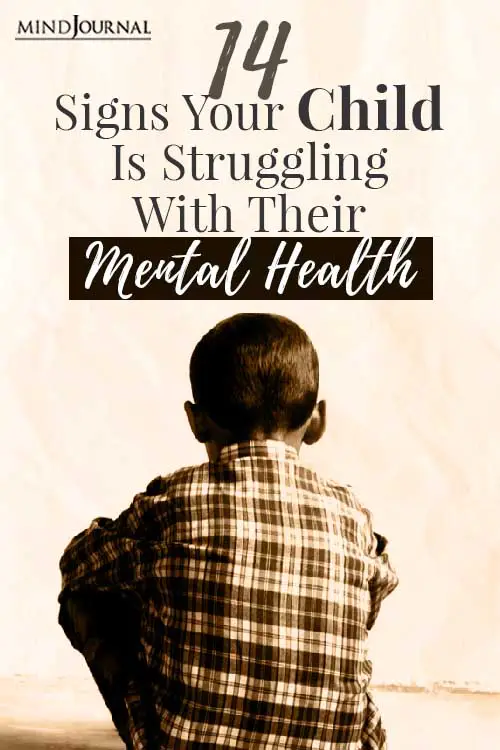
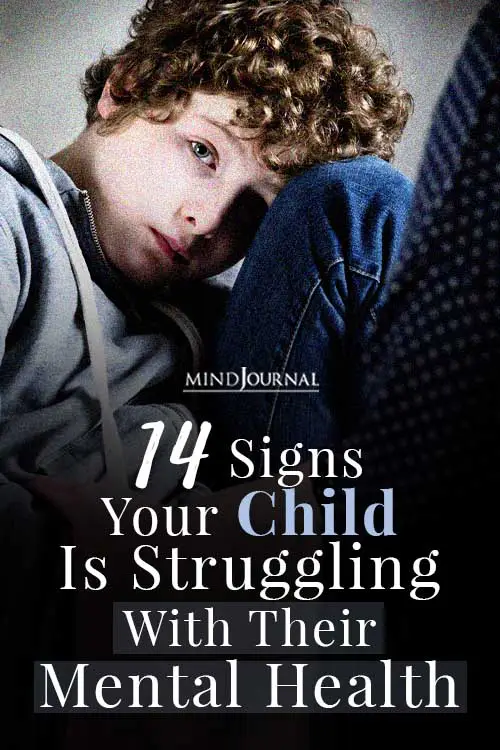
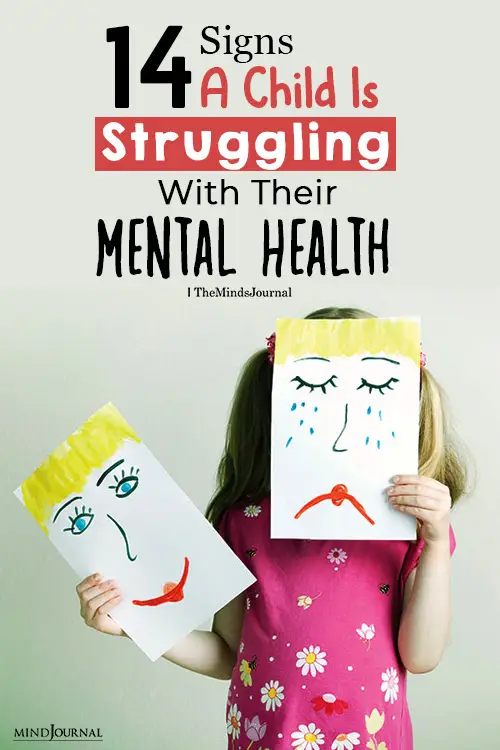
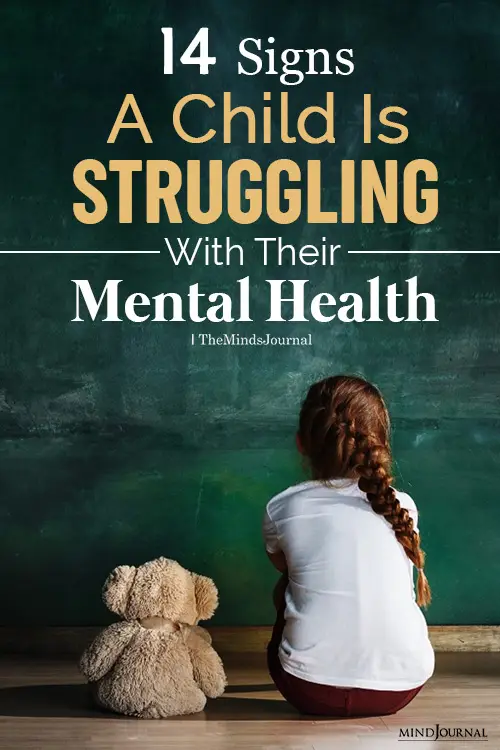
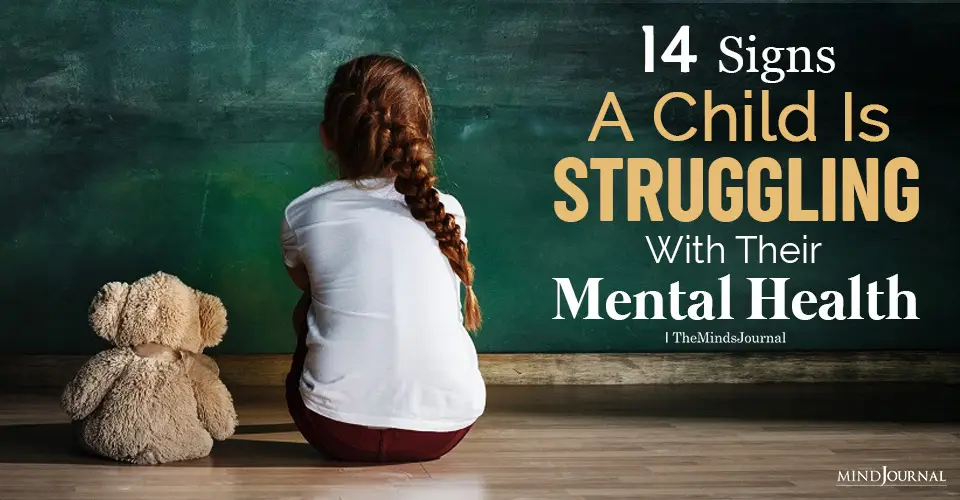







Leave a Reply
You must be logged in to post a comment.